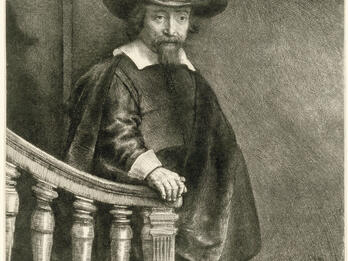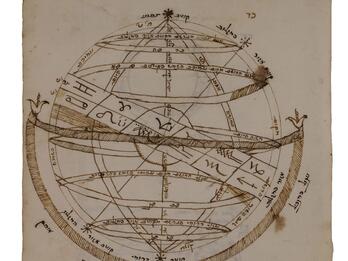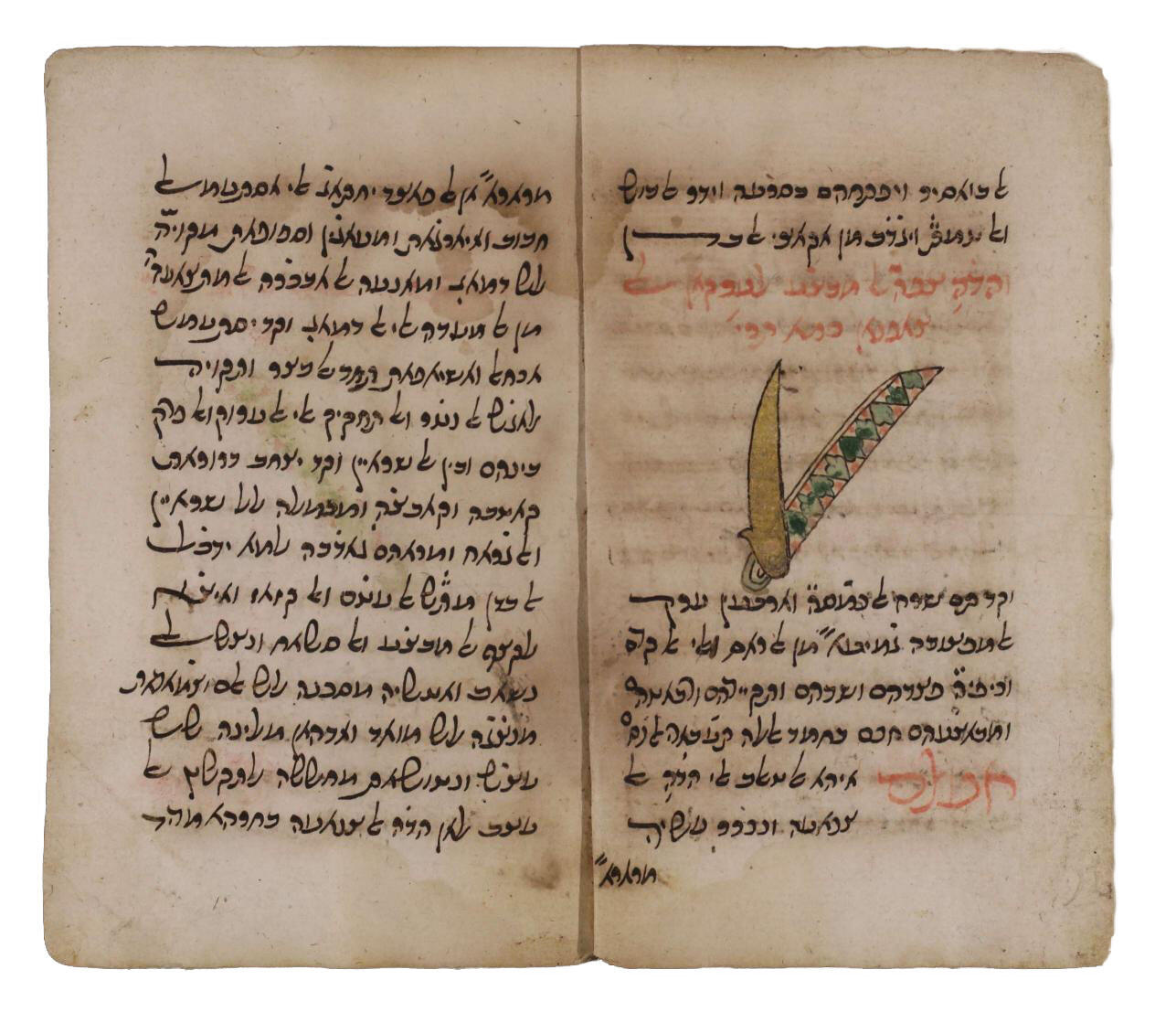Phlebotomy knife
Atzlan ben Abraham al-Karaji
18th Century
Credits
Courtesy the Russian State Library, Moscow, OR F.71 #1036.
Published in: The Posen Library of Jewish Culture and Civilization, vol. 5.
You may also like

Be’er mayim ḥayim (Wellspring of Living Waters)
When bloodletting is done at the right time, and when there is need for it, it promotes the health of the person, as I shall write about, God willing. When bloodletting is…

Portrait of Issachar Baer Teller
The physician and surgeon Issachar Baer Teller received his medical training by studying and practicing with other physicians in Prague. He completed his studies under the guidance of Joseph Solomon…
Short Treatise on God, Man, and His Well-Being
Love:I see, Brother, that my being and perfection depend entirely on your perfection; and since the perfection of the object you have conceived…
The Physician’s Prayer
[ . . . ] Since, therefore, Thou hast favored me with kindness and hast crowned me with honor and glory and Thou hast made me worthy of knowing a bit of the science of medicine, therefore I wish to…

Portrait of Dr. Ephraim Hezekiah Bueno
Rembrandt van Rijn lived in the part of Amsterdam where the artists’ guild (St. Luke’s Guild) was located. By coincidence, it was also home to a number of Jews. Rembrandt’s artworks attest to an…
Letter to Johannes Bouwmeester
To the Very Learned and Experienced Mr. Johannes Bouwmeester
From B. d. S.
Most Learned Sir, special Friend,
I have not been able till now to reply to your last letter, which I received some time…
Engage with this Source
Public Access
Image
Language:
Restricted
Related Guide
Early Modern Trade and Mercantilism
1500–1750
International trade drove Jewish mobility during the age of mercantilism, as Jewish merchants formed wide commercial networks and partnerships and developed cosmopolitan attitudes that facilitated civic inclusion.

Related Guide
Education and Scholarship
1500–1750
The early modern period featured educational reforms, anti-Christian polemics, and growing Jewish university participation.
Creator Bio
Atzlan ben Abraham al-Karaji
18th Century
Nothing is known about Atzlan ben Abraham al-Karaji, though his name suggests that he hailed from Karaj, a city near Tehran in present-day Iran. A Judeo-Arabic medical text is his only known work.
You may also like

Be’er mayim ḥayim (Wellspring of Living Waters)
When bloodletting is done at the right time, and when there is need for it, it promotes the health of the person, as I shall write about, God willing. When bloodletting is…

Portrait of Issachar Baer Teller
The physician and surgeon Issachar Baer Teller received his medical training by studying and practicing with other physicians in Prague. He completed his studies under the guidance of Joseph Solomon…
Short Treatise on God, Man, and His Well-Being
Love:I see, Brother, that my being and perfection depend entirely on your perfection; and since the perfection of the object you have conceived…
The Physician’s Prayer
[ . . . ] Since, therefore, Thou hast favored me with kindness and hast crowned me with honor and glory and Thou hast made me worthy of knowing a bit of the science of medicine, therefore I wish to…

Portrait of Dr. Ephraim Hezekiah Bueno
Rembrandt van Rijn lived in the part of Amsterdam where the artists’ guild (St. Luke’s Guild) was located. By coincidence, it was also home to a number of Jews. Rembrandt’s artworks attest to an…
Letter to Johannes Bouwmeester
To the Very Learned and Experienced Mr. Johannes Bouwmeester
From B. d. S.
Most Learned Sir, special Friend,
I have not been able till now to reply to your last letter, which I received some time…



